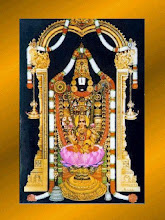 The US government is preparing to sell its 27% stake in Citigroup, in what would be one of the largest share sales in history. Some 7.7 billion shares in the bailed-out bank will be sold in tranches throughout 2010, the US Treasury said.
The US government is preparing to sell its 27% stake in Citigroup, in what would be one of the largest share sales in history. Some 7.7 billion shares in the bailed-out bank will be sold in tranches throughout 2010, the US Treasury said.
It will mark another stage in Wall Street's recovery, and could make the US taxpayer $8bn (£5.3bn) in profit. Citigroup, which has posted more than $100bn in write-downs, required three government rescues in 2008 and 2009. At Citigroup's opening share price of $4.39 on Monday, the Treasury's stake would be worth just over $33bn, giving an $8bn profit to the US taxpayer.
CITIGROUP INC. Last updated: 29 Mar 2010, 20:57 UK *Chart shows local time price change % 4.18 -0.13 -3.02 More data on this share price The bank has received a total of $45bn in bail-out money from the Treasury's $700bn Troubled Asset Relief Program (Tarp).
It was the largest amount given to a bank (and was equal to the sum given to Bank of America). Citigroup was given $25bn in return for 7.7 billion in shares, and was loaned another $20bn in two tranches.
This $20bn was repaid in December. The bank, once one of America's most illustrious financial institutions, has seen its share price collapse 90% since late 2006 as fears about its financial health grew. Its shares fell after the Treasury confirmed the sale, falling 4% to $4.11. Before the credit crisis they were worth more than $50.
Morgan Stanley has been chosen to underwrite and advise on the sale, though the US Treasury emphasised that the disposal was subject to market conditions.
A Treasury statement said that it "intends to sell its Citigroup common shares into the market through various means in an orderly and measured fashion". It is thought that the share sales will begin after Citigroup reports its results next month.
Analyst Greg Valliere of Soleil Securities said a profitable exit of the government's stake in Citi would be a "great PR victory for the Obama administration". "There are many skeptics who never thought this day would come," he added.
Taxpayer money Citi follows other Wall Street banks, including Goldman Sachs and Bank of America, who have repaid the government investment. Although the bank rescues now seem likely to be profitable, BBC economics correspondent Andrew Walker says, other financial aid will probably cost the taxpayer money, including the insurer AIG and the carmakers General Motors and Chrysler.According to the latest official report on the state of Tarp at the end of 2009, 67 recipients had repaid all or part of their bail-out money, totalling more than $165.2bn.
The Treasury had also received by the end of December $16.9bn in additional payments such as interest and dividends on its investments. -0.13 -3.02 More data on this share price The bank has received a total of $45bn in bail-out money from the Treasury's $700bn Troubled Asset Relief Program (Tarp).
It was the largest amount given to a bank (and was equal to the sum given to Bank of America). Citigroup was given $25bn in return for 7.7 billion in shares, and was loaned another $20bn in two tranches.
This $20bn was repaid in December. The bank, once one of America's most illustrious financial institutions, has seen its share price collapse 90% since late 2006 as fears about its financial health grew.
Its shares fell after the Treasury confirmed the sale, falling 4% to $4.11. Before the credit crisis they were worth more than $50. Morgan Stanley has been chosen to underwrite and advise on the sale, though the US Treasury emphasised that the disposal was subject to market conditions. A Treasury statement said that it "intends to sell its Citigroup common shares into the market through various means in an orderly and measured fashion". It is thought that the share sales will begin after Citigroup reports its results next month.
Analyst Greg Valliere of Soleil Securities said a profitable exit of the government's stake in Citi would be a "great PR victory for the Obama administration". "There are many skeptics who never thought this day would come," he added.
Taxpayer money Citi follows other Wall Street banks, including Goldman Sachs and Bank of America, who have repaid the government investment. Although the bank rescues now seem likely to be profitable, BBC economics correspondent Andrew Walker says, other financial aid will probably cost the taxpayer money, including the insurer AIG and the carmakers General Motors and Chrysler.(This blog provide free 'stock market tips')
According to the latest official report on the state of Tarp at the end of 2009, 67 recipients had repaid all or part of their bail-out money, totalling more than $165.2bn. The Treasury had also received by the end of December $16.9bn in additional payments such as interest and dividends on its investments.






